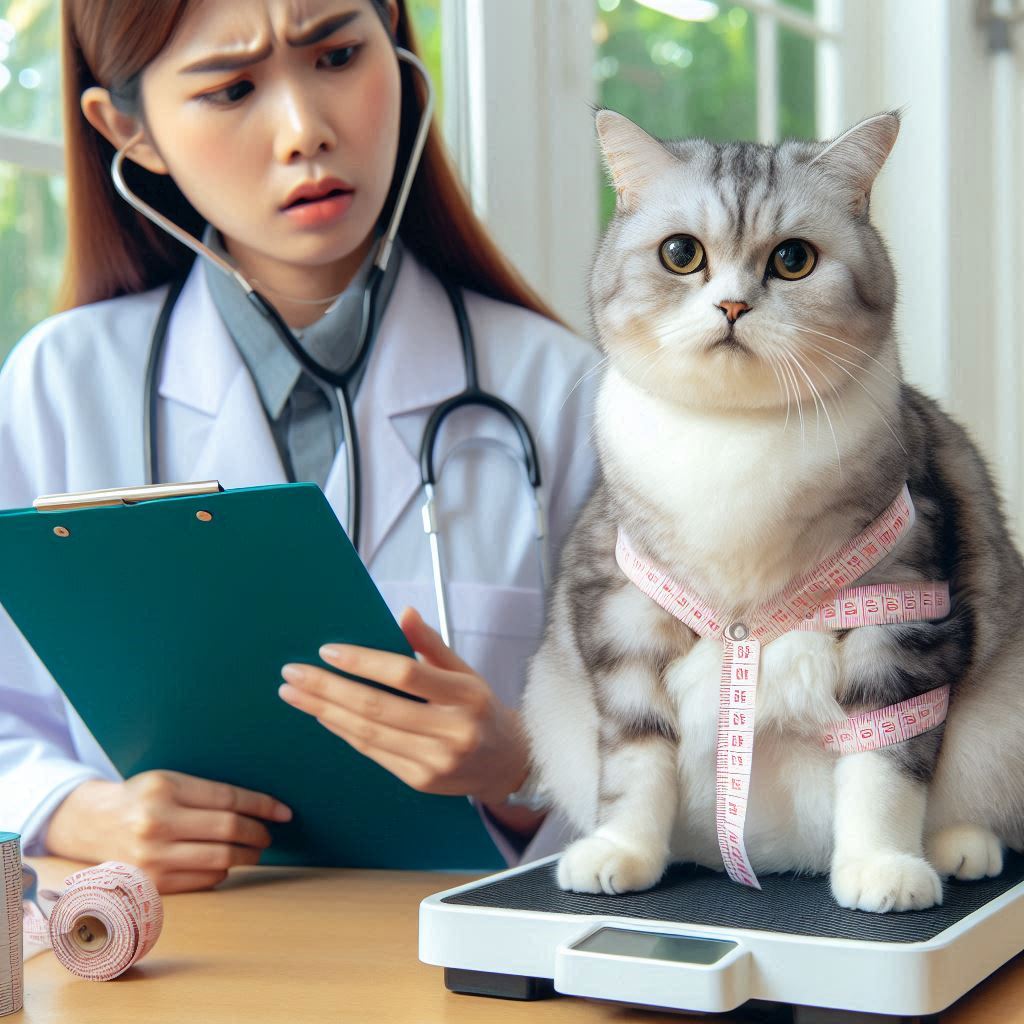
It’s summer, and if you’re a cat parent, your cats might be losing weight. It’s not that they’re eating less or eating more slowly — the feline metabolism is pretty much the same as ours. But the temperature may be playing a role in their waistline.
The body regulates its temperature by sweating and panting. Cats’ sweat glands are located on their paws, so when they step into cooler air, they pant to cool down — even if it’s indoors in the middle of winter.
Cats also have a layer of fat under their skin called adipose tissue, which acts as insulation against heat loss; it also helps maintain average body temperature. But when this fat goes unused during warmer weather, it will start to melt away (in humans, this fat layer can become depleted).
Cats are very furry animals, and they have a lot of hair. This means that in summer, cats tend to lose weight. Cats usually lose up to 1% of their body weight during the summer months compared to the winter months.
There are several reasons why this happens:
1) Cats are less active in the summer because they don’t need as much energy because they can stay inside all day.
2) Cats also eat less because their food is more watery and has less protein in it.
3) The weather makes it harder for cats to digest their food properly, which causes them to use more energy than usual.
Do Cats Look Fatter in Winter?
The answer is no, your cat does not look fatter in winter. Cats are a year-round species, meaning they naturally eat and drink more in the summer months than they do in winter.
Cats do not get fat in winter because of the change in the climate. They tend to gain weight during the summer months because of the food that they eat and the amount of water that they drink.
Cats can become overweight if they do not exercise, one of many contributing factors that cause them to put on weight.
If a cat is overweight, it can be difficult to tell. Body mass index (BMI), which measures body fat based on height and weight, is used as a standard for determining whether a cat is too fat.
A cat’s average weight should be around 7 pounds. However, if your cat is wheezing or struggling to breathe, he may be overweight. The National Heart Lung and Blood Institute recommends keeping your cat at an ideal weight by following these tips:
Feed your cat high-quality food. Cats are carnivores and need meat-based foods like chicken, beef, and fish for protein sources. Vegetables are also important for cats’ overall health but should not make up most of their diet because they are low in fat. Feeding dry food is better than wet food; dry food contains more moisture that helps prevent obesity in cats.
Limit treats to once a month or less. Treats should be fed in moderation because they can add extra calories without providing any additional nutrition if eaten frequently.
Why Does My Cat Feel Lighter?
Your cat feels lighter because he has lost weight. It’s easy to understand why, when you think about it: all animals have a fundamental drive to eat and reproduce.
Your cat is not doing any breeding or building a nest, so he must be keeping up his energy levels somehow. You can see this most clearly if you consider his daily routine.
He wakes up in the morning, eats breakfast, naps, and then eats lunch. After lunch, he goes outside and plays for a while before coming back inside again for another meal. Then he will go out for more playtime before going to bed.
If you feed your cat table food instead of canned food, this process will be even more apparent — unless you’re feeding him nothing but raw meaty bones from the store (in which case he’ll probably still lose weight).
The explanation for how cats lose weight so quickly is simple: they don’t need as much energy as humans do to survive on their terms — but they do need enough energy to stay healthy and happy (and grow).
Cats also have a very high metabolic rate compared to humans (which means they burn calories faster than we do), so they need smaller amounts of food than we do
Do Cats Eat Less in Summer?
Cats are nocturnal, so they eat more in the evening. Cats also tend to snack on food low in calories, such as dry cat food, which can make them gain weight during the summer months.
In summertime, cats don’t need as much energy and can conserve their energy to go outside. The result is that your cat may eat less or stay inside more.
However, if you notice your cat’s weight has increased or decreased for several months, then it could be a sign of health issues such as diabetes or heart disease. If your cat suddenly starts eating more than usual, this could be a sign of illness, so it’s best to get him checked out by a vet!
In most cases, cats will not stop eating altogether if fed a balanced diet with plenty of high-quality nutrition. However, owners need to be educated about what their cats need and how certain foods will help their cats stay healthy and happy.
Cats have a unique ability to regulate their body temperature, which is why they do not need to drink as much water in the summer months. In addition, cats have fur that helps them keep cool, so their bodies do not sweat as much as humans do when it’s hot outside.
Do Cats Lose Weight as They Age?
Cats lose weight as they age. This is because their metabolism slows down, and they require more calories to maintain the same weight. Cats also have a lower rate of muscle mass than dogs do, so they don’t burn as many calories when they are active.
A cat’s metabolism slows as they age, leading to weight gain if they aren’t given enough energy from their food. Cat owners should also be aware that some breeds of cats tend to be overweight because their bodies have to work harder to maintain their size and shape.
Weight loss in cats can be indicative of various health problems, including kidney disease and diabetes, but it’s not always easy to tell the difference between normal aging and a weight problem.
Cats can get fatter if they eat too many high-calorie foods, such as commercial cat food, or a diet with too many carbohydrates (such as pasta). When these foods are fed regularly, your cat might gain weight.
Cats can live for about 10 to 15 years, depending on their size and breed. A large Maine Coon cat may have a lifespan of 15 to 20 years lifespan, while a tiny Siamese may only live for 10 to 12 years.
Do Male Cats Lose Weight During Mating Season?
Yes. Male cats lose weight during the mating season due to the increased appetite and stress that is associated with this time of year. This can lead to several health issues, including kidney disease and diabetes.
In general, male cats lose weight during the mating season because they need to get ready for mating with another cat or another female cat.
A male cat’s testosterone levels rise during this period, and he needs the energy to produce sperm cells that he will use to fertilize an egg.
The reason why males lose weight is that they have fewer fat stores than females do and therefore need more calories to sustain themselves during mating season.
For male cats, the mating season means a time of heightened activity, including an increased appetite and stress. This is why many male cats lose weight during mating season.
A male cat ready to breed will lose a lot of weight during this period if he’s not eating enough food or his metabolism is slowing down. He may also become lethargic and moody because he’s not getting attention from his owner or a female cat.
Some males will become obese and may develop health problems like kidney disease or diabetes. In addition, they may become more aggressive toward other male cats or even people when they are in heat.

